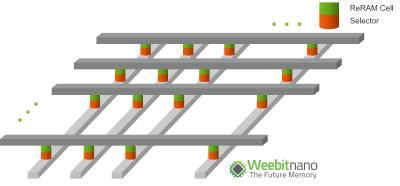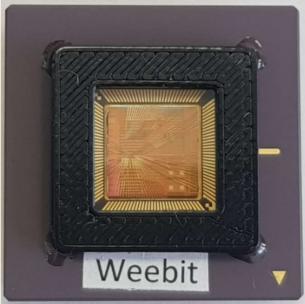Weebit Nano and DB HiTek tape out their first 130nm RRAM demonstration chip
In October 2023 RRAM developer Weebit Nano announced that it has signed a licensing agreement with DB HiTek, a Korean-based foundry (said to be one of the world's top 10 foundries). The commercial agreement includes technology transfer, qualification and licensing.
Yesterday Weebit announced together with DB HiTek that it has taped-out (released to manufacturing) a demonstration chip integrating Weebit’s embedded RRAM module in DB HiTek’s 130nm Bipolar-CMOS-DMOS (BCD) process. The highly integrated demo chips will be used for testing and qualification ahead of customer production, while demonstrating the performance and robustness of Weebit’s technology.



